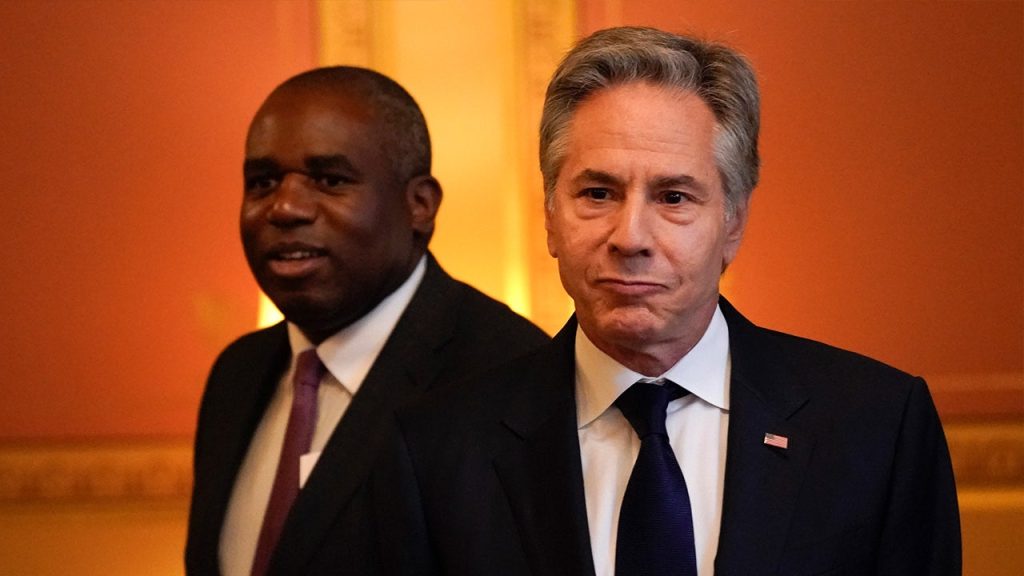U.S. Secretary of State Antony Blinken confirmed on Tuesday that Iran has provided Russia with short-range ballistic missiles that will likely be used in Ukraine in the coming weeks. This supply of missiles allows Russia to focus more of its arsenal on targets farther from the front lines, while using new missiles received from Iran for closer range targets. Blinken, while speaking in London alongside British Foreign Secretary David Lammy, promised that Iran would face repercussions for this transfer of weapons, and additional sanctions on Iran were expected to be announced later on Tuesday.
Reports emerged on Monday indicating that the European Union and its allies had received credible information that Moscow was receiving top weaponry from Iran, despite warnings from the U.S. and NATO. Blinken expressed concern over the growing cooperation between Russia and Iran, stating that it poses a threat to European security and demonstrates Iran’s influence extending beyond the Middle East. He also highlighted the information sharing between Russia and Iran in areas such as nuclear development and space-based technology, emphasizing the need for action to address the situation.
The International Atomic Energy Agency (IAEA) warned on Monday that Iran has continued to develop its nuclear program unchecked for the past three and a half years, increasing its stockpiles of highly enriched uranium to levels close to weapons-grade. IAEA Director General Rafael Mariano Grossi called for a constructive dialogue with new Iranian President Masoud Pezeshkian to address these concerns. However, Blinken cautioned that supporting Russia in its conflict with Ukraine will have severe consequences for Iran, potentially hindering efforts to restore engagement with Europe and receive sanctions relief.
Blinken emphasized that destabilizing actions like providing ballistic missiles to Russia contradict Iran’s stated goal of engaging with Europe, and will have the opposite effect by further isolating the country. While Germany, France, and the U.K. have strongly condemned Iran’s actions, specific sanctions have not yet been announced. Blinken warned of significant economic consequences for Iran and suggested that European allies were preparing to take their own sanction-based actions against Tehran. The situation highlights the need for coordinated international responses to address Iran’s activities and ensure regional and global security.
The supply of Iranian missiles to Russia has raised concerns about the potential impact on the conflict in Ukraine and broader European security. The cooperation between Iran and Russia in the transfer of weapons poses a threat to regional stability and security, as it enables Russia to access additional firepower while diverting resources to targets further from the front lines. The situation underscores the complex geopolitical dynamics at play in the region and the need for diplomatic efforts to address escalating tensions and prevent further destabilization.
As Iran’s nuclear program continues to advance, unchecked by international oversight, the risk of proliferation and escalation of regional conflicts grows. The IAEA’s warning about Iran’s increased stockpiles of highly enriched uranium highlights the urgent need for dialogue and cooperation to address proliferation risks and uphold non-proliferation commitments. The situation also underscores the broader challenges of managing nuclear programs in volatile regions and the importance of diplomatic efforts to prevent further escalation and maintain global security.


